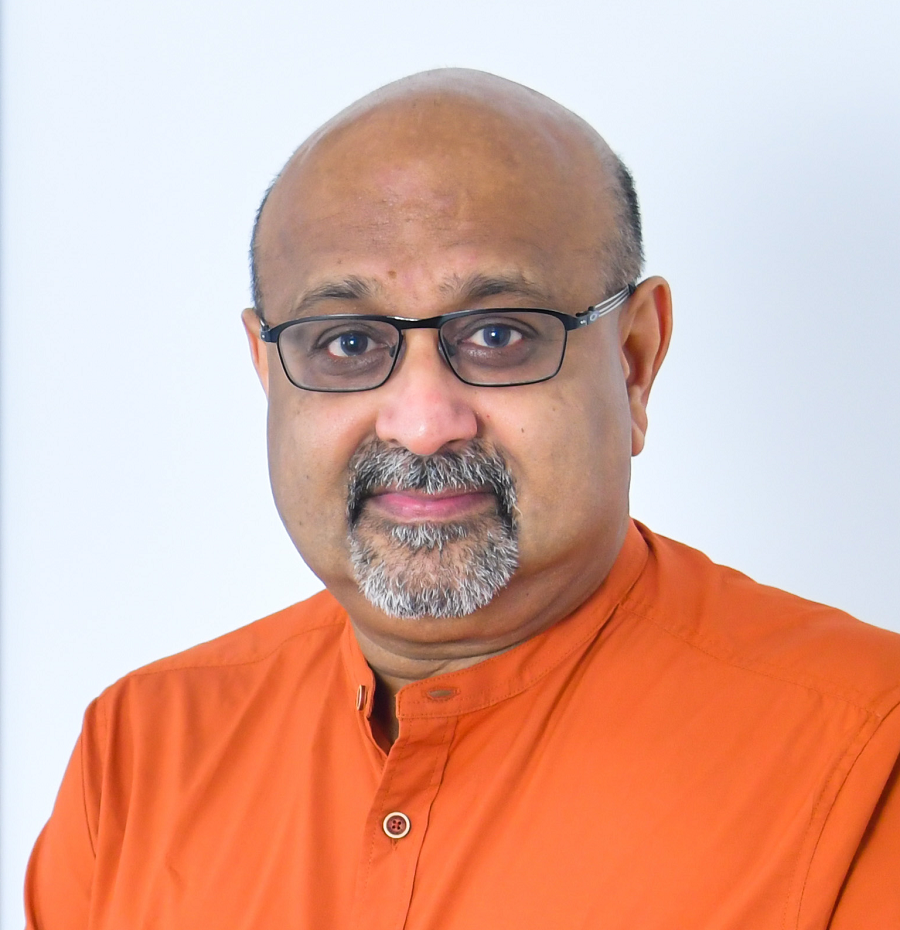

THIRUVANANTHAPURAM:
Professor M Radhakrishna Pillai, whose trailblazing initiatives propelled Rajiv Gandhi Centre for Biotechnology (RGCB) into one of India’s finest disease biology and biotechnology research and development institutes, will call it a day as the institute’s Director on August 31, capping a career that is strewn with superlative feats.
The youngest director of a national institution at 44, Dr. Pillai was an outstanding scientist, administrator, guru and guide all rolled into one; he helmed RGCB for 15 years, an eventful phase that saw a slew of projects being taken from laboratory to the people, including some indigenously-developed, affordable technologies to manage the COVID-19 pandemic. A Rapid Antibody Card, a Viral Transport Media (VTM) kit, a viral RNA extraction kit and a RT-PCR diagnostic kit are four key products co-developed by RGCB for curbing the pandemic, which have obtained manufacturing license from the Central Drugs Standard Control Organization (CDSO).
Earlier, when Kerala was grappling with outbreaks of chikungunya and dengue fevers during 2006-11, followed by the H1N1 flu pandemic, RGCB filled the vacuum of not having a laboratory in the state to do molecular viral diagnostics. Prof. Pillai, who was then entrusted by the state government to provide RGCB’s expertise in assisting the public health service, leading to development of an NABL and NABH accredited Laboratory Medicine & Molecular Diagnostics (LMMD) facility, which now performs over 40 viral and bacterial parameters, the only facility in India performing that much under one roof. Professor Pillai also established the Molecular Forensics Facility which also is NABL and NABH accredited for doing DNA fingerprinting and wildlife forensics.
Following a successful stint as Professor of Molecular Medicine at the Regional Cancer Centre, he joined RGCB in March 2005. RGCB was then a state-run institute with an average performance index and diffuse research objectives. It was because of his administrative acumen and direction that led to its take over by Central Government in 2007.
Prof. Pillai also successfully piloted a Rs 100-crore project of RGCB to create a unique Bio- innovation Centre (BIC), marking a shift from investigator-driven to team-driven science for accelerated discovery and early translation. He convinced the state government to transfer 20 acres of land free of cost in the heart of the city for the project, whose main goal is to evolve BIC into a hub for research on vaccines development, viral disease biology and cancer immunotherapeutics.
A visionary with rare skills, he inspired several projects, translating innovations into marketable products. Credit goes to him for nurturing “Bio-Nest” in Kochi as an incubator for business and technology development. This incubator now boasts of 23 startup companies
Dr. Pillai’s outstanding translational research on cervical cancer, the most frequent cancer in women in India caused by the human papillomavirus (HPV), was recognized by the Bill & Melinda Gates Foundation and the WHO, which supported him to alleviate the huge socio-economic burden of 3-dose vaccine against HPV. He proved the efficacy of 2-dose vaccine that led several countries to adopt the two-dose regimen thus marking RGCB on the international map of achievements.
more recommended stories
THIRUVANANTHAPURAM:The two-day Annual Management Convention of.
THIRUVANANTHAPURAM:As part of the Prime Minister’s.
THIRUVANANTHAPURAM:In the upcoming seminar hosted by.
PATHANAMTHITTA:South Indian Bank has conducted an.
THIRUVANANTHAPURAM:As part of its ‘Adopt A.
THIRUVANANTHAPURAM:A panel discussion was organised by.
THIRUVANANTHAPURAM:Bubbling with enthusiasm, over 3,000 people.
THIRUVANANTHAPURAM:Food and Civil Supplies Minister G.
THIRUVANANTHAPURAM:Technology should be used for the.
THIRUVANANTHAPURAM:UST, a leading digital transformation solutions.